★★½
“Olivia Newton-John not included.”
 I went into this braced for it to be terrible, having sat through the same film-makers’, largely irredeemable Bloodsucka Jones vs. The Creeping Death. Fortunately, this is considerably better. Still very cheap and flawed, yet is at least aware of its own limitations, and tries to work inside them (albeit with mixed success). It’s about eight-year-old Ruby (Surrec), who lives with her single parent Dad, Steven (Thomas), and is obsessed with comic-book heroine, Xanadu Hellfire (Minear). For her birthday, Ruby wants to stage a ritual from the comic, and bring Xanadu back from her post-apocalyptic future. Dad humours her – at least until the ritual works, and Xanadu arrives, with wicked stepsister Raven (America) on her heels.
I went into this braced for it to be terrible, having sat through the same film-makers’, largely irredeemable Bloodsucka Jones vs. The Creeping Death. Fortunately, this is considerably better. Still very cheap and flawed, yet is at least aware of its own limitations, and tries to work inside them (albeit with mixed success). It’s about eight-year-old Ruby (Surrec), who lives with her single parent Dad, Steven (Thomas), and is obsessed with comic-book heroine, Xanadu Hellfire (Minear). For her birthday, Ruby wants to stage a ritual from the comic, and bring Xanadu back from her post-apocalyptic future. Dad humours her – at least until the ritual works, and Xanadu arrives, with wicked stepsister Raven (America) on her heels.
From here, things progress more or less as you expect. Xanadu has to adapt to life in contemporary society (I did laugh at her going to Ruby’s school, where the battle-bikini clad warrior princess is described as “an exchange student from Canada”). She bonds with Ruby, partly because she reminds the moppet of her absent mother. Conveniently, Xanadu and Mom take the same size in clothes, as we find out during a dress-up montage. Raven shows up, and “wreak havoc” as she and her sidekicks search for Xanadu. Xanadu, Ruby, Dad, some of Dad’s loser friends from high-school team and Ruby’s best friend, Becky, team up to take on Raven and Co.
It’s a super mixed bag of elements that are fun, and stuff which borders on the cringe. Sometimes, both are in close proximity. For example, Minear looks really good twirling her staff. But as soon as she goes into hand-to-hand combat, she slows down to about one-tenth of the speed. While I admire the avoidance of hyper-kinetic editing, the lengthy shots only exacerbate this problem. The comedy which doesn’t hit, misses by a mile, such as an extended joke about characters walking about in slow-motion. It doesn’t help that Ruby’s lines never sound like something an adorable eight-year-old would say e.g. “Eat shit, Frankenhooker!”. Yet some elements are genuinely funny, such as the way Raven’s minions team up with the local Goth girl. This leads to the exchange, “I thought you were dead?” “Only on the inside…”
It’s at its best when obviously not taking itself seriously. For instance, Becky going up to a minion before the final battle, and saying, “I like your make-up. Do you need a hug?” Sadly what follows is far from the climactic conflict the movie needs, and at 107 minutes long, this is in serious need of significant trimming. There was also surprisingly little difference between the post-apocalyptic world and the modern one, though this might have been a deliberate joke. Or it might not. The ending teases a sequel, which I’m all in favour of, providing it stops the makers from doing another Bloodsucka Jones movie. For I would be at least cautiously interested in seeing Xanadu’s further adventures, as despite the flaws here, there is genuine heart at its heart.
Dir: Justin Armao
Star: Macy Minear, Aria Surrec, Ryon Thomas, Arianna America





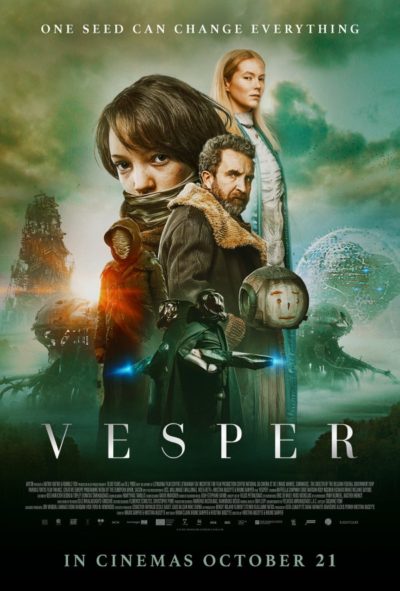 As the above suggests, I was getting a strong manga influence, in particular from the works of Hayao Miyazaki: it feels like the script could have been something he’d have written on a gloomy Wednesday in January. Feisty teenage heroine? Check? Ecological message? Check. For this takes place after some kind of change in the world, which has left the bulk of the population clinging on to existence by their grubby fingernails, in a world now owned by bizarre flora. Vesper (Chapman) is one such, tending to her paralyzed father (Brake) whose consciousness has been transferred into a drone. She trades with her uncle, Jonas (Marsan), swapping blood for the seeds they need to survive.
As the above suggests, I was getting a strong manga influence, in particular from the works of Hayao Miyazaki: it feels like the script could have been something he’d have written on a gloomy Wednesday in January. Feisty teenage heroine? Check? Ecological message? Check. For this takes place after some kind of change in the world, which has left the bulk of the population clinging on to existence by their grubby fingernails, in a world now owned by bizarre flora. Vesper (Chapman) is one such, tending to her paralyzed father (Brake) whose consciousness has been transferred into a drone. She trades with her uncle, Jonas (Marsan), swapping blood for the seeds they need to survive.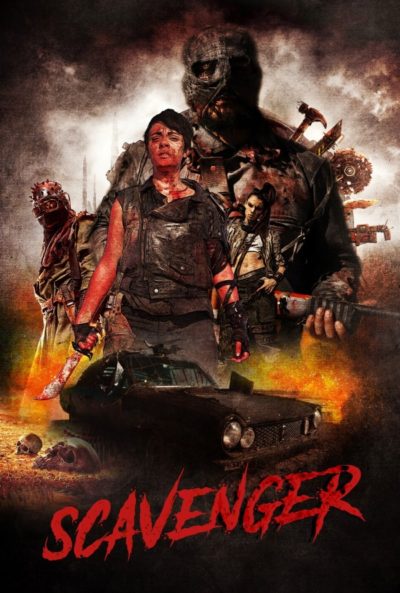 This should be right up my alley. For it’s a grungy, post-apocalyptic story of revenge, which is heavy both on the carnage and the nudity. Throw in disapproving reviews containing lines like, “Downright nasty movie that takes all the worst bits of exploitation cinema and proudly puts it on display,” or “Scavenger is truly appalling,” and you’ll understand why it was fast-tracked for viewing. However, the weird thing is… those reviews aren’t wrong – it is a bad movie, just not for the reasons they espouse. The bigger problem is simply poor execution, in a way that manages to take the sex ‘n’ violence, and make it all painfully dull. Of all the cinematic sins, that’s one I find hard to forgive.
This should be right up my alley. For it’s a grungy, post-apocalyptic story of revenge, which is heavy both on the carnage and the nudity. Throw in disapproving reviews containing lines like, “Downright nasty movie that takes all the worst bits of exploitation cinema and proudly puts it on display,” or “Scavenger is truly appalling,” and you’ll understand why it was fast-tracked for viewing. However, the weird thing is… those reviews aren’t wrong – it is a bad movie, just not for the reasons they espouse. The bigger problem is simply poor execution, in a way that manages to take the sex ‘n’ violence, and make it all painfully dull. Of all the cinematic sins, that’s one I find hard to forgive.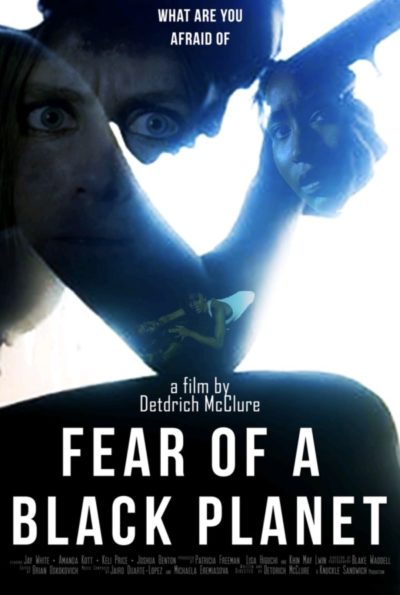 It’s interesting to look at the film’s IMDb page, and contrast the reviews, where there’s nothing less than an 8/10, with the rating, where 73% of votes are a 1/10. One “review” was actually a rant about other reviews which appear to have been removed? Something odd there. There’s no doubt, the film is not so much tackling a contentious topic, as driving head-first into it at 80 mph. Even the title (obviously inspired by the Public Enemy LP of the same name) is an incendiary one, guaranteed to raise the hackles of many – and, to be honest, not without reason, because of the assumptions it makes. It’s a shame, since the film is at least slightly more nuanced than the title makes it seem.
It’s interesting to look at the film’s IMDb page, and contrast the reviews, where there’s nothing less than an 8/10, with the rating, where 73% of votes are a 1/10. One “review” was actually a rant about other reviews which appear to have been removed? Something odd there. There’s no doubt, the film is not so much tackling a contentious topic, as driving head-first into it at 80 mph. Even the title (obviously inspired by the Public Enemy LP of the same name) is an incendiary one, guaranteed to raise the hackles of many – and, to be honest, not without reason, because of the assumptions it makes. It’s a shame, since the film is at least slightly more nuanced than the title makes it seem.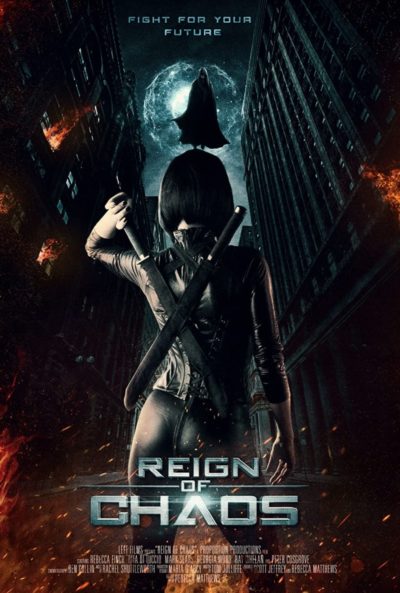 There are spells where I find myself going through a stream of mediocre movies, wondering when I’ll see something genuinely good. Then, I stumble into the likes of this, which leaves me yearning for the heady delights of mediocrity. It was in trouble right from the start, with five minutes of opening voice-over that did nothing but leave me confused. Then again, if your story requires five minutes of opening voice-over in the first place, you should probably rethink your storytelling techniques. The same could be said for a post-apocalyptic scenario in which food is in short supply, yet black pleather cat-suits are apparently easily available, in a range of sizes to fit all needs.
There are spells where I find myself going through a stream of mediocre movies, wondering when I’ll see something genuinely good. Then, I stumble into the likes of this, which leaves me yearning for the heady delights of mediocrity. It was in trouble right from the start, with five minutes of opening voice-over that did nothing but leave me confused. Then again, if your story requires five minutes of opening voice-over in the first place, you should probably rethink your storytelling techniques. The same could be said for a post-apocalyptic scenario in which food is in short supply, yet black pleather cat-suits are apparently easily available, in a range of sizes to fit all needs. A disease sweeps the planet, killing billions. The only ones with any hope of surviving in the outside world are the young, a small number of whom appear to have a natural immunity. Five years on, and Ellie is one of the few to have endured, scraping for a life among the leftovers of civilization. But she and the other survivors are the targets for the Stalkers: roaming groups of biohazard-suit clad hunters in white vans. They seek to capture the immune, for use in a project to develop a vaccine that can allow the elite to come out of their safe havens. While trying to avoid them, she encounters Quinn (Smith), another survivor with a wealth of knowledge, and a hard-edged approach to life. Initially, Quinn wants nothing to do with Ellie, though eventually realizes two heads can sometimes be better than one, in the never ending struggle to stay alive and free.
A disease sweeps the planet, killing billions. The only ones with any hope of surviving in the outside world are the young, a small number of whom appear to have a natural immunity. Five years on, and Ellie is one of the few to have endured, scraping for a life among the leftovers of civilization. But she and the other survivors are the targets for the Stalkers: roaming groups of biohazard-suit clad hunters in white vans. They seek to capture the immune, for use in a project to develop a vaccine that can allow the elite to come out of their safe havens. While trying to avoid them, she encounters Quinn (Smith), another survivor with a wealth of knowledge, and a hard-edged approach to life. Initially, Quinn wants nothing to do with Ellie, though eventually realizes two heads can sometimes be better than one, in the never ending struggle to stay alive and free.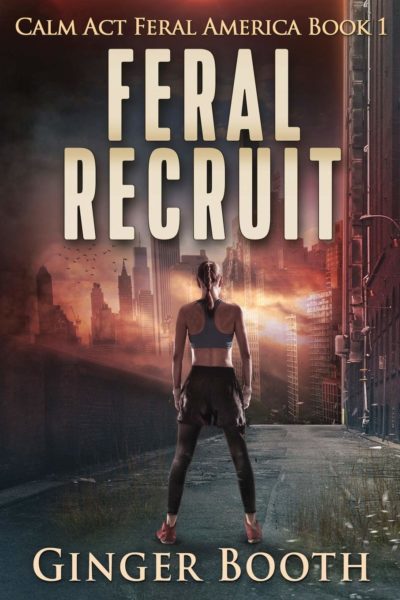
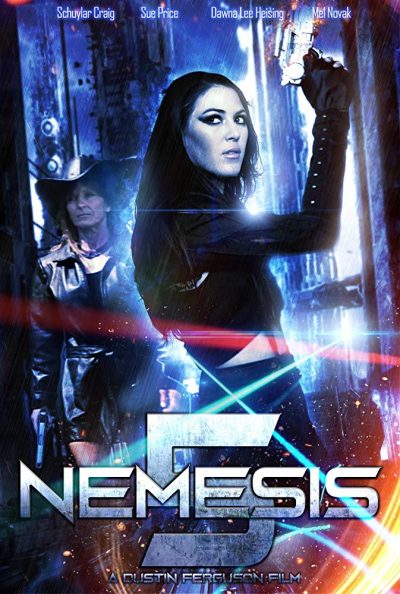 It has been twenty years since
It has been twenty years since  Really, for a reported budget of about $6,500 – and those are Canadian dollars, which currently works out to less than five grand in freedom dollars – this is quite impressive. You could argue that trying to create a convincing post-apocalyptic scenario on such a tiny budget is biting off more than you can chew. And there are certainly moments which just don’t work. But in its low-key approach, it’s probably a more accurate reflection than many of the way in which the world might end. Not with a bang, but with a whimper, and a slow grinding to a halt.
Really, for a reported budget of about $6,500 – and those are Canadian dollars, which currently works out to less than five grand in freedom dollars – this is quite impressive. You could argue that trying to create a convincing post-apocalyptic scenario on such a tiny budget is biting off more than you can chew. And there are certainly moments which just don’t work. But in its low-key approach, it’s probably a more accurate reflection than many of the way in which the world might end. Not with a bang, but with a whimper, and a slow grinding to a halt.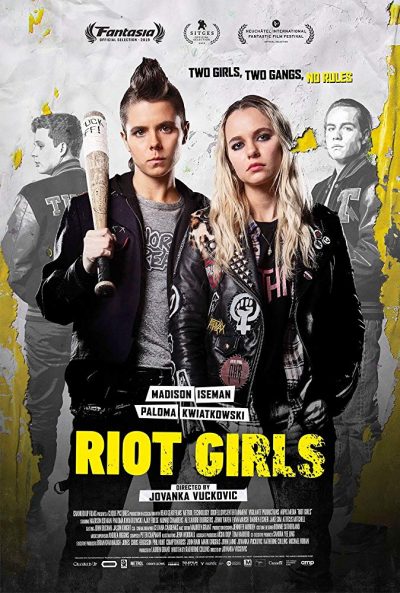 After a disease has wiped out all adults, the town of Potters Bluff has divided into two camps, delineated by the river running through the town. On the west are the Titans, a quasi-fascist order of jocks operating out of the old high school and led by Jeremy, whose motto is “Strength, power, respect.” On the east are the free-spirited remainder, living under and protected by Jack (Bourgeois). However, after hijacking the contents of a Titan truck, Jack is abducted by them and held hostage. A three-person party sets out on a rescue mission: Jack’s sister Nat (Iseman), her best friend – and painfully obvious lesbian, right down to the mohawk – Scratch (Kwiatkowski), and Sony (Friese), a former Titan who recently defected to the East, and whose inside knowledge is essential to their survival and the success of the mission.
After a disease has wiped out all adults, the town of Potters Bluff has divided into two camps, delineated by the river running through the town. On the west are the Titans, a quasi-fascist order of jocks operating out of the old high school and led by Jeremy, whose motto is “Strength, power, respect.” On the east are the free-spirited remainder, living under and protected by Jack (Bourgeois). However, after hijacking the contents of a Titan truck, Jack is abducted by them and held hostage. A three-person party sets out on a rescue mission: Jack’s sister Nat (Iseman), her best friend – and painfully obvious lesbian, right down to the mohawk – Scratch (Kwiatkowski), and Sony (Friese), a former Titan who recently defected to the East, and whose inside knowledge is essential to their survival and the success of the mission.